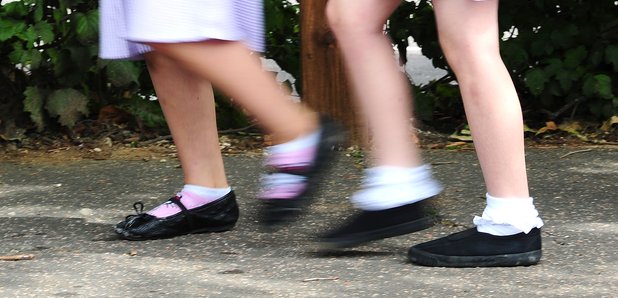Review Finds Children Exposed To Risk And Neglect
22 January 2019, 14:32 | Updated: 22 January 2019, 14:35

Authorities looking into concerns about children's well-being provided a "less consistently robust" response in cases where youngsters were suffering from "chronic poor parenting", inspectors have said.
The Care Inspectorate conducted a review of services for children and young people over 2012 to 2017 and found "for the majority" the various organisations involved "responded well to ensure their safety".
It said for some children, however, including those living in families where there were repeated low-level incidents of domestic abuse and for children already known to the authorities and those in care, there could be a poorer response.
In a major new report, published days after the parents of a malnourished toddler who died were jailed, the Care Inspectorate said it had "consistently came across a small number of children and young people who had been exposed to risk and neglect for too long".
It stated: "The signs of risk and neglect were not being recognised consistently.
"Consequently, interventions were not happening early enough or effectively to protect children and young people from harm.
"Some children and young people were, therefore, subject to delays in being assessed for, or in receiving, services and were left in situations of risk for too long."
On Friday, Margaret Wade, 38, and Marie Sweeney, 37, were each jailed for more than six years after admitting neglect of Lauren Wade, who died in hospital in 2015 from complications arising from malnutrition aged two years and five months.
The youngster was extremely thin and infested with head lice when she was taken to Royal Hospital for Sick Children in Yorkhill in March that year.
When it came to responding to concerns about the safety and well-being of children, the Inspectorate found this was good or better in around seven out of 10 cases it looked.
It added: "In approximately 30% of records we reviewed, we evaluated the initial response of services as adequate or less."
Where concerns were "less evident" - such as those relating to general well-being, or where youngsters were already known to the authorities - it added the response was good or better in about six out of 10 cases.
It found one in 10 was "was considered to be less than adequate, that is weak or unsatisfactory".
The report said: "On occasion, we came across significant delay in responding to concerns about well-being, including where concerns related to allegations of neglect."
While the inspectors accepted the "complexities" of when to intervene, the inspectors revealed: "Many of the records we reviewed included instances where well-being issues were indicative of neglect, however, signs or patterns were not recognised early enough by professionals to enable them to intervene early to protect children and young people
"For these children and young people, the corresponding delays in assessments led to delays in the correct actions being taken to keep the child or young person safe."
The report stated: "For the majority of children and young people, services responded well to ensure their safety.
"Responses were less consistently robust where concerns were cumulative, for example, where children and young people were experiencing chronic poor parenting or repeated exposure to lower level incidents of domestic abuse, where children were already involved with services, including children or young people who were looked after."
As part of the review inspectors met with with 1,502 parents and carers, as well as 2,744 children and young people across Scotland to discuss their experience of services.
"They also reviewed more than 3,000 case records relating to children and young people.
Peter Macleod, chief executive of the Care Inspectorate said: "This overview of the past five years of inspection work is significant because it helps identify areas of achievement and areas where more can, and must, be done."
Community planning partnerships, which bring together a range of organisations , were "unable to consistently or effectively demonstrate improvement in closing the educational outcomes gap" between youngsters who are in care and those who are not, the report found.
It also noted that "continued waiting lists" for Child and Adolescent Mental Health Services (CAMHS) in most of the areas that were inspected "meant that some children and young people were experiencing delays in receiving the help they needed".






















